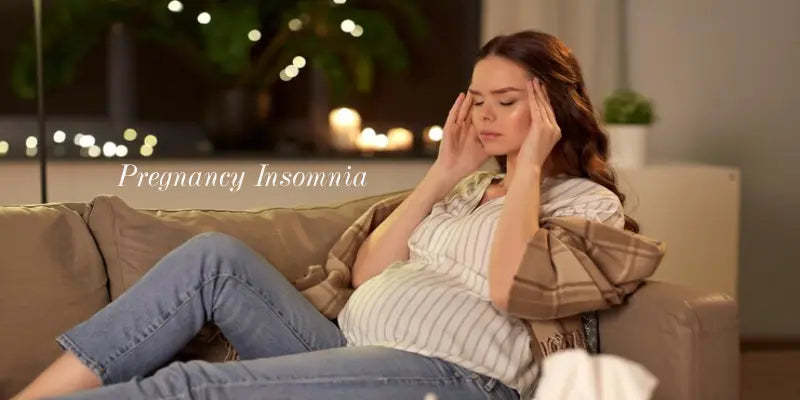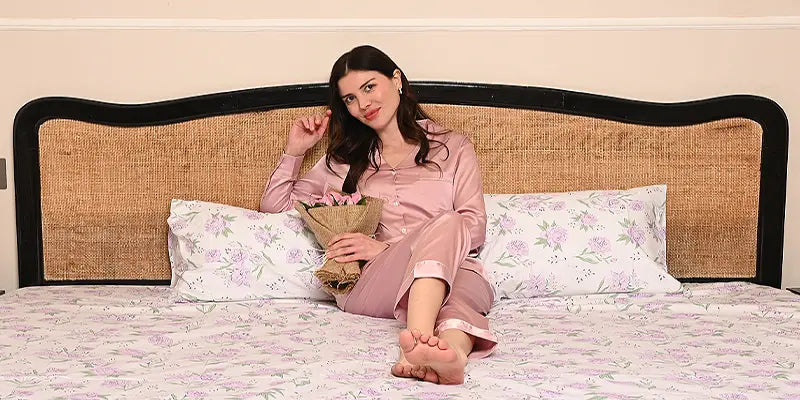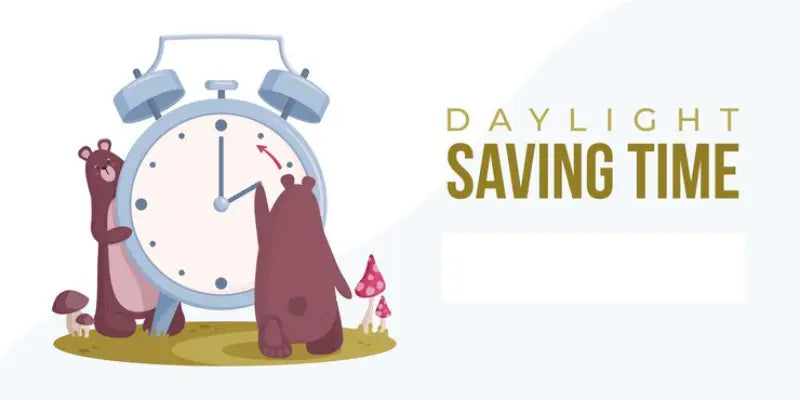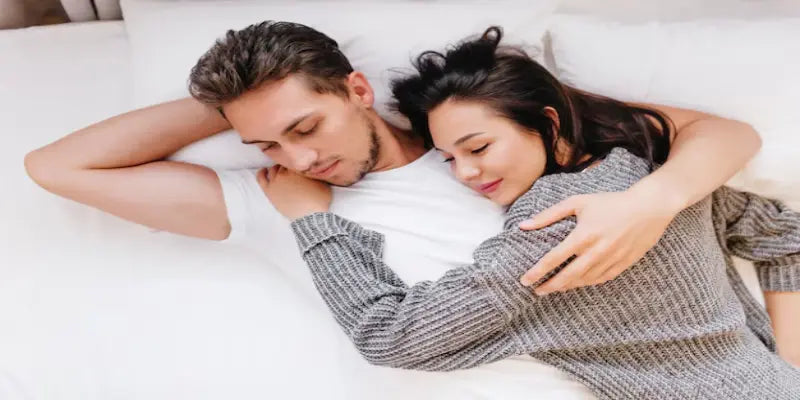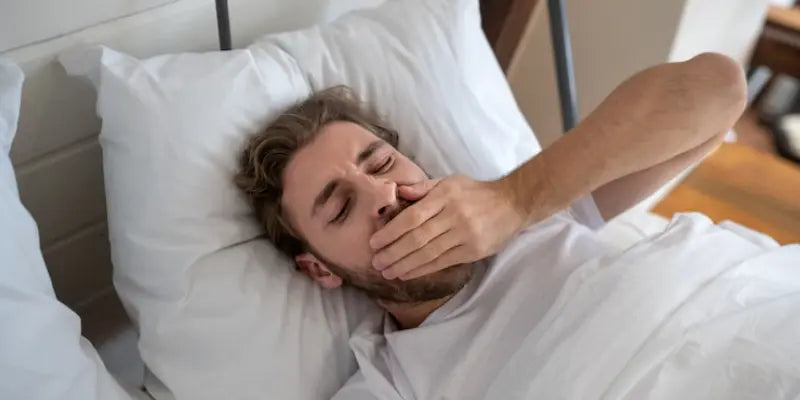
Sleep Apnea- Causes and Effects
Sleep apnea is a condition that makes you stop breathing while you're asleep. Your brain wakes you up enough to breathe in an attempt to protect you, but this keeps you from getting a good night's sleep. Serious difficulties may arise from this syndrome over time. But with careful devotion to recommended therapies, this illness is frequently extremely controllable.
In this blog, we’ll explore what sleep apnea is, types of sleep apnea, causes of sleep apnea, symptoms of sleep apnea, sleep apnea risk factors and what all the treatment options available for sleep apnea.
What is Sleep Apnea?
Sleep apnea is a serious sleep disorder that causes a person to stop breathing at night. Throughout the night, the breathing would periodically stop and start. If your partner complains that you snore loudly or you feel tired even after sleeping all night, you may have sleep apnea.
Sleep apnea is not the same as primary snoring. Conditions of the nose or throat, your sleeping habits (particularly back sleeping), being overweight or elderly, or the use of alcohol or other depressants can all contribute to primary snoring whereas sleep apnea is different.
Primary Types of Sleep Apnea
Obstructive sleep apnea (OSA), the most common type of sleep apnea that occurs when throat muscle relaxes and blocks the flow of air into the lungs.
Central sleep apnea (CSA) develops when the brain fails to send proper signals to the muscles that control breathing so that the person stops breathing
Treatment-emergent central sleep apnea, also known as complex sleep apnea, occurs when someone has OSA (diagnosed with a sleep study) that transforms to CSA when getting therapy for OSA.
If you think you might have sleep apnea,you can consult your doctor. Treatment can help you prevent other complications and illnesses that can be caused due to sleep apnea , also it can ease the symptoms and can help you sleep better at night.
If you don’t do anything about sleep apnea, it can cause loud snoring, daytime fatigue, or can cause more serious problems like heart trouble or high blood pressure.
The loud snoring condition caused by sleep apnea is different from regular snoring. Regular snoring can be caused by nose or throat conditions, your sleeping position, being overweight or using alcohol or other depressants.
Snoring at night does not necessarily indicate sleep apnea. While both types of snoring occur when tissues in the back of your neck vibrate, those with sleep apnea are more likely to:
- Snore a lot louder than people who snore regularly.
- Pause for more than ten seconds as they breathe.
- Take weak breathing, gasp, or choke.
- Be restless when sleeping
Sleep apnea is not thought to be fatal. However, research has shown that persons who have the illness are twice as likely to die abruptly in a particular time period as those who do not--especially if it is not addressed. This is due to its association with significant illnesses such as high blood pressure, heart disease, stroke, and diabetes.
Watch this video to know more about the causes and treatment of sleep apnea.
Sleep Apnea Causes
What causes sleep apnea varies on what type you have:
- Obstructive sleep apnea: It is caused by conditions that narrow your airway or interfere with your airflow, such as obesity, swollen tonsils or adenoids, or a thick neck.
- Central sleep apnea: Anything that impairs your brain's control over your breathing and chest muscles can cause this condition. This includes hormone levels and some health issues. This impact can be caused by opioid usage, as well as aging-related changes.
Some study suggests that apnea may run in families. So if your parents or any person in blood relation have sleep apnea, it can also impact you.
Sleep Apnea Symptoms
Your earliest symptoms of obstructive sleep apnea are unlikely to be noticeable, but your partner may notice them. The most common indicators include:
- Loud Snoring
- Depression or Anxiety
- Frequently need to get up to pee at night
- Night sweats.
- Sexual dysfunction.
- Headaches
- Fatigue disease or drowsiness throughout the day
- Restlessness while sleeping, or frequently waking up at night.
- When you wake up, you may have a dry mouth or sore throat.
- Waking up abruptly after gasping or choking
- difficulty concentrating, forgetfulness, or crankiness
People with central sleep apnea commonly complain about waking up frequently or having insomnia. They may also experience choking or gasping when they wake up.
Sleep Apnea Symptoms in Women
Women (including those who were designated as female at birth) with the disease may snore less frequently than men. For them, Sleep apnea symptoms in women may include:
- Anxiety or Depression
- Headaches, particularly in the morning.
- Fatigue
- Daytime drowsiness.
- Trouble sleeping, especially frequently waking up during the night.
Sleep Apnea Symptoms in Children
The symptoms may not be as noticeable in children. Warning indicators include:
- Hyperactivity or difficulty focusing at school.
- Poor academic achievement.
- Feeling tired all day.
- Trouble swallowing
- Daytime mouth breathing
- During inhalation, the rib cage moves inward.
- Sweating excessively at night.
- Heartburn
- Unusual sleeping positions, such as sleeping on hands and knees or with the neck extended
- Frequently moving their arms and legs while sleeping.
- Symptoms include loud snoring and bedwetting.
These pillows tend to be made of memory foam, which offers excellent pressure relief as it conforms to your head's shape.
Effects of Sleep Apnea
When you stop breathing short due to sleep apnea, your blood oxygen level drops. This activates a brain reaction, waking you up long enough to resume breathing.
These repeated awakenings prevent you from spending enough time in the deepest stages of sleep. The more serious your disease, the more likely your sleep will be disrupted.
Losing sleep causes you to feel fatigued during the day. You may be less productive at work or school and experience irritability, moodiness, or sadness. You can be forgetful or struggle to concentrate. Furthermore, you are more likely to have an accident at work or when driving.
Also Read:- Understand How the Science of Sleep Works
Sleep Apnea Risk Factors
This disorder can affect anyone, however some factors increase your risk:
- Being overweight.
- A wide neck circumference can constrict your airways.
- A narrow airway that you inherited or developed due to large tonsils or adenoids
- Being male (or having been identified as male from birth)
- Older age
- A family history of sleep apnea.
- Smoking
- The use of alcohol, sedatives, or tranquilizers
- Nasal congestion.
- Type 2 diabetes, congestive heart failure, high blood pressure, Parkinson's disease, PCOS, hormonal abnormalities, a history of stroke, or chronic lung diseases such as asthma.
Treatment for Sleep Apnea
Lifestyle changes
You can treat mild sleep apnea by making some changes into your lifestyle. Experts recommend:
- Lose weight: Approximately half of those with sleep apnea are overweight. If you are overweight, you may have excess tissue in your throat, making it difficult to breathe. Losing weight, even just a few pounds, can often help your symptoms.
- Avoid alcohol and sleeping medicines: These substances can reduce the muscle tone in the back of your throat, which might impede air movement.
- Change your sleeping position: Staying off your back allows you to breathe more comfortably. Here's a way to avoid rolling over: Place two tennis balls in a tube sock and pin them to the back of your pajamas.
- Use a contoured pillow: A contoured pillow is found great for those who suffer from sleep apnea. It helps to support the neck and keep the head in a neutral position.
- Stop smoking: Smoking can cause swelling in your upper airway, which can lead to snoring and apnea.
- Treat allergies: Nasal allergies swell and constrict your airways, making it difficult to breathe. Ask your doctor how you can get them under control.
Also Read:- Dyspnea - Causes, Symptoms, Diagnosis and Treatment
Other Treatment Options
CPAP Machine
Obstructive sleep apnea (OSA) occurs when the muscles in your throat relax and soft tissues block your airway. The most popular and reliable treatment strategy is to use a continuous positive airway pressure (CPAP) machine.
The CPAP machine delivers a continuous stream of air through a mask you wear while sleeping. It keeps the airway open. This reduces (or eliminates) snoring and improves sleep quality.
BiPAP Machine
A BiPAP (bi-level positive airway pressure, also known as BPAP) machine is similar to a CPAP in that it delivers a stream of air to keep your airways open. Unlike CPAP, a BiPAP does not provide continuous pressure all the time.
Some CPAP users have difficulty exhaling with consistent pressure, thus the BiPAP provides less air when you breathe out.
ASV and Other Machines
The adapto servo ventilation machine (ASV) regulates airflow based on how you breathe. During the breathing procedure, the variable positive airway pressure machine (VPAP) provides you with varied amounts of air.
The variety of PAP machines available might be overwhelming, as can getting familiar with masks and straps. However, these solutions are suitable for a large number of people. Consult your doctor about what might be the best option for you.
Oral Appliances (MADs)
PAP machines are more effective at treating sleep apnea, while some patients prefer mouth appliances (also known as mandibular advancement devices). Many of these mouthpieces are intended to move your jaw forward and open your airway. Others keep your tongue in place. Dentists often create bespoke designs. There are other over-the-counter choices.
Surgery
The last option for sleep apnea is surgery. The most common procedure is uvulopalatopharyngoplasty. Surgeons remove soft tissue from the back of your palate and, in some cases, your tonsils and uvula. Other procedures may include the jawbones, soft tissue, or nose.
Conclusion
Sleep apnea is a sleep disorder in which you stop breathing short while sleeping, leading you to wake up frequently during the night. This prevents you from getting a deep sleep and increases your risk of many health disorders. The appropriate treatment can help prevent and eliminate your symptoms while protecting your health.
Contoured pillows are most recommended by medical professionals for patients suffering from sleep apnea due to their raised center, which helps to support the neck and keep the head in a neutral posture.
The best available contoured pillow in the market is a contour pillow with infused gel. This is made up of memory foam, which provides excellent pressure relief by conforming to your head's shape.




